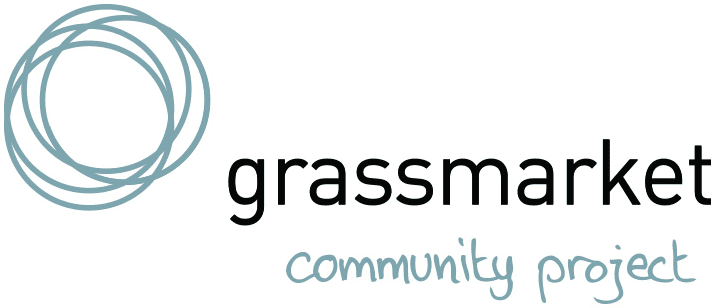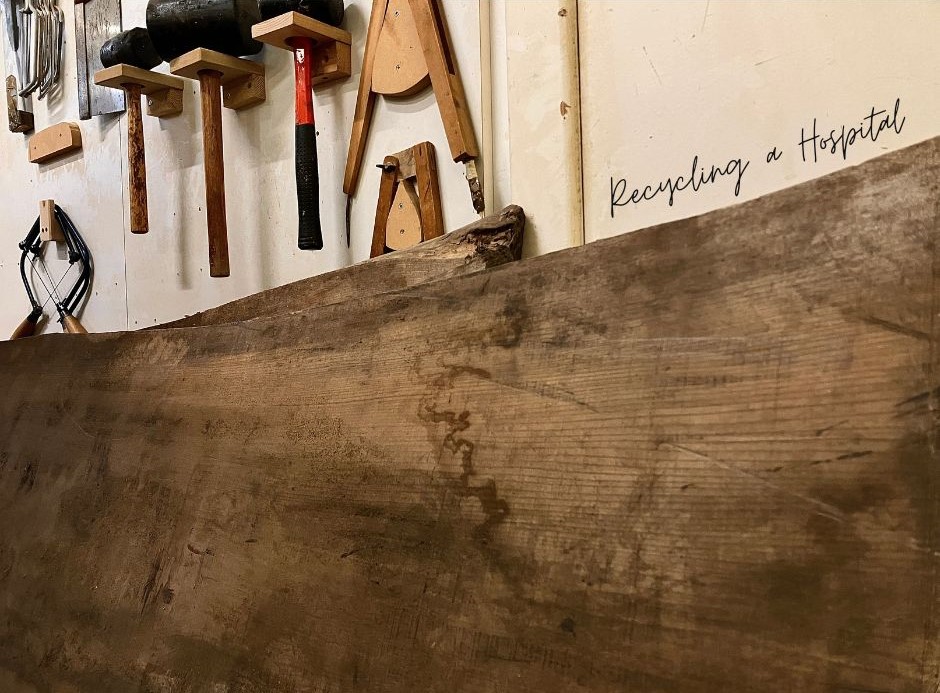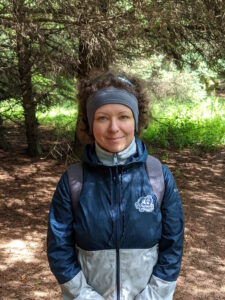Recycling a Hospital is an interdisciplinary arts project that connects woodworking, poetry, stone carving, ceremony and photography, and aims to honour the Old Royal Infirmary of Edinburgh on Lauriston Place and the memories connected to it. The project is facilitated by Edinburgh Futures Institute, which recently moved in to the refurbished former surgical part of the hospital.
The motivation behind the project is the belief that before embarking on the building’s new life as an educational space, it is vital to honour the experiences of people who were connected to the building whilst it was a hospital. Since the hospital was so central to the city’s life, many people in Edinburgh have memories connected to it – from the joys of a child being born, to the sorrows of illness, the relief of healing, or mourning following death. The building also saw numerous cohorts of nurses and doctors who started their careers in it and were part of these memories. As the building transitions into its new life, these memories should not be forgotten.
The project began in 2022 with the discovery of interesting materials on the building’s construction site. These materials – large wooden floor beams and roof slates – were not in good enough condition to contribute to the refurbished building. However, we realised that they nevertheless bear a rich history and symbolic connection to the former hospital – so letting them be disposed of in usual ways did not feel right. Instead, we decided to give the materials a new life in the form of an artwork. That way, the materials would contribute to not only the physical, but also the symbolic transformation of the building.
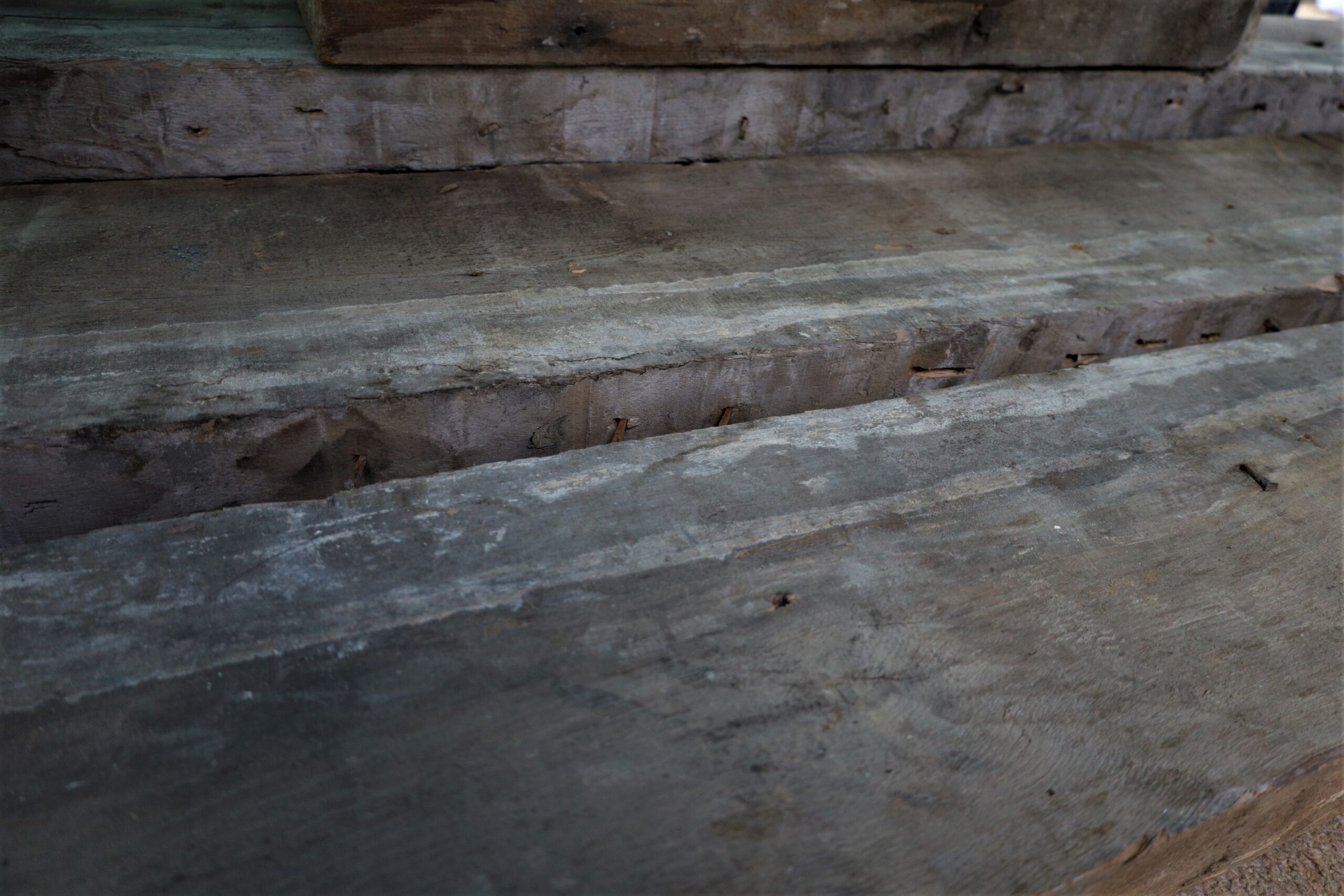
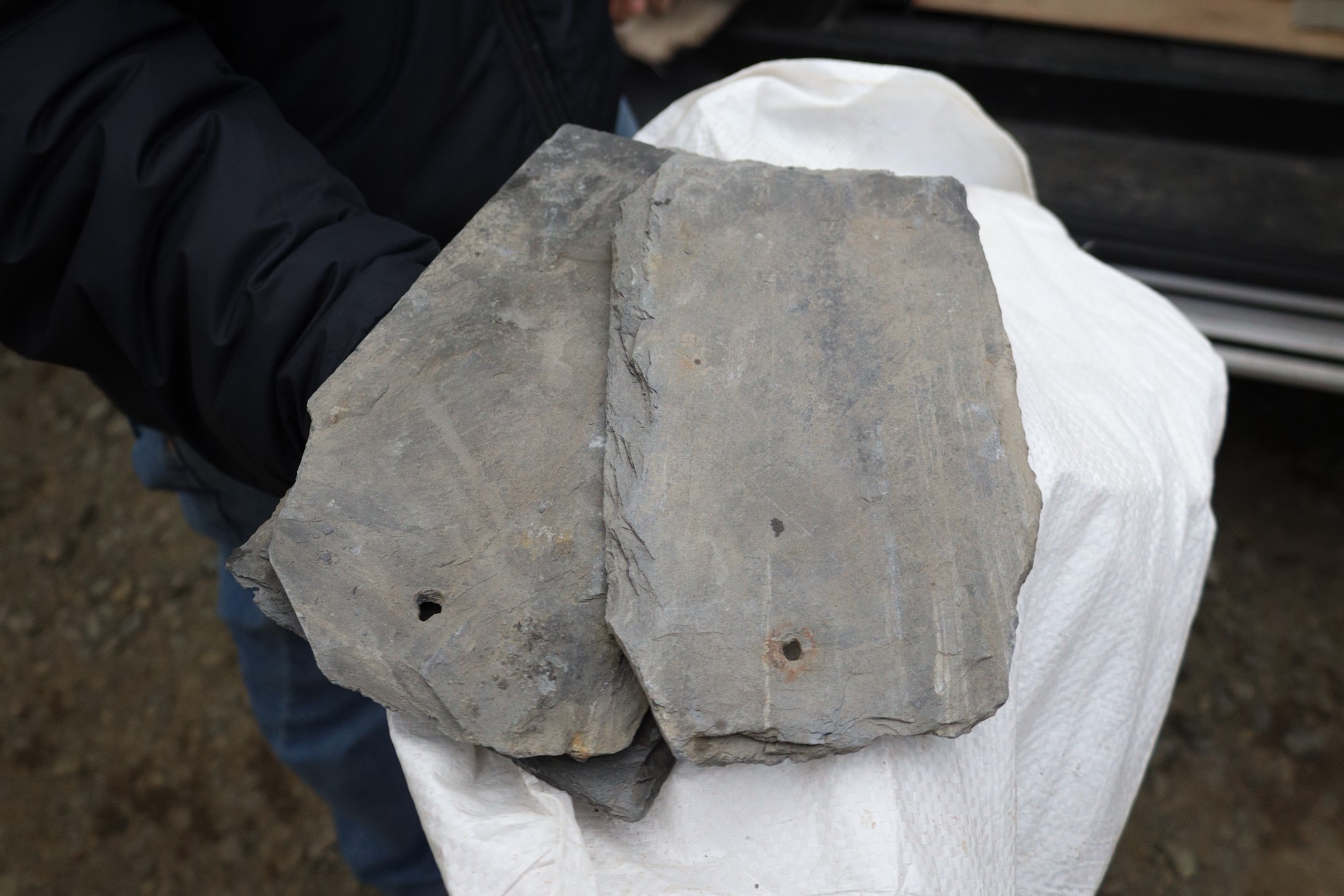
We partnered up with the Grassmarket Community Project and Gus Fisher, Scotland-based stone and lettering artist. Together with Jimmy Turner, they are working to produce the Spirit Case – a sculpture that combines the wood and the slate pieces. The sculpture will also feature the memories of the former hospital staff and patients, carefully sculpted into poetry during workshops facilitated by Jennifer Williams.
The stories of the hospital are also being documented by Gintare Kulyte, who works closely with each person who agreed to share their memories to produce a series of creative photographic portraits. These will be published online and exhibited at EFI during the project community event in May 2024. The event will be centered around a ceremony aimed to complete the building’s transition from a hospital into an educational space. The ceremony will be facilitated by Ekaterina Shurkova.
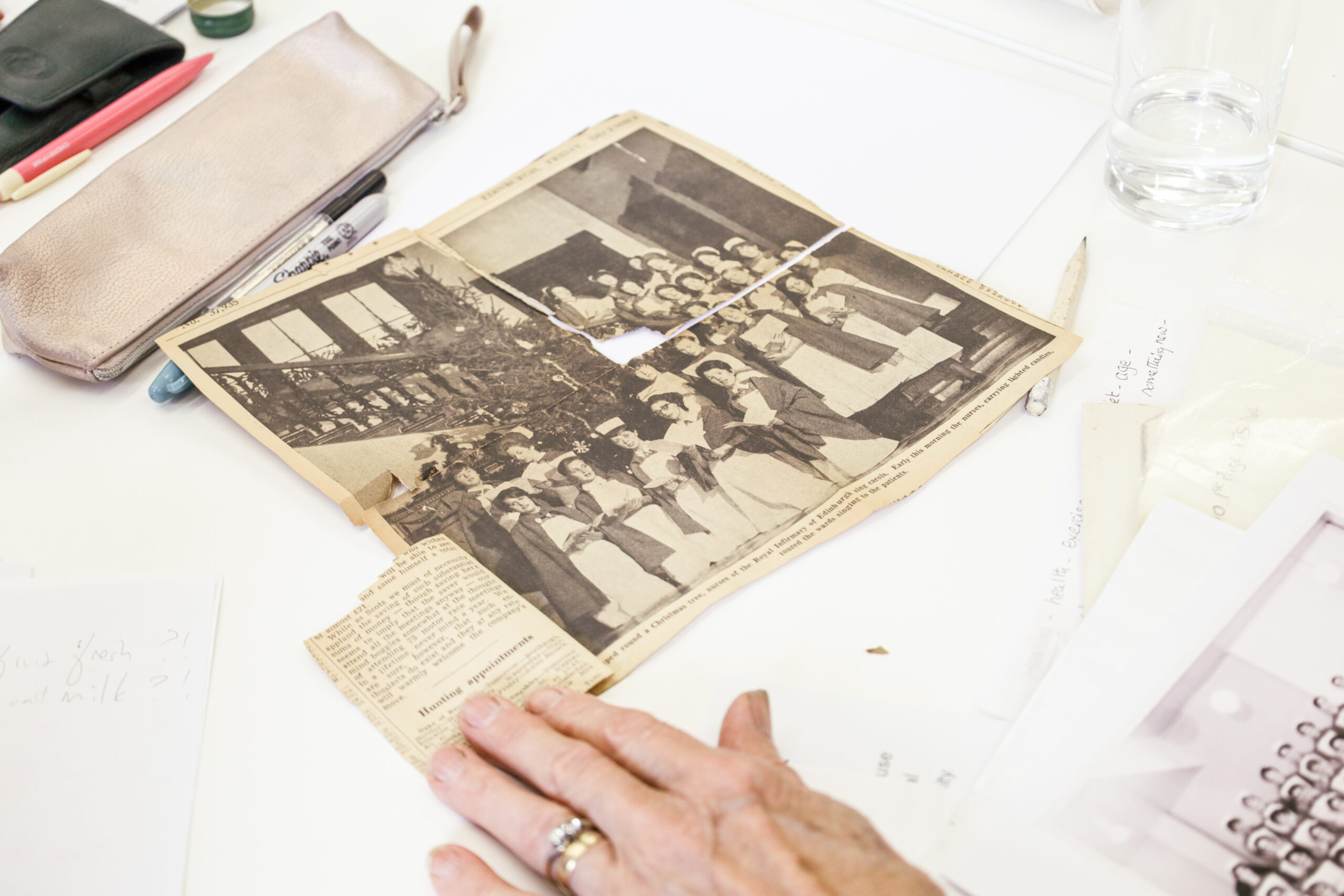
On this blog, we are documenting the project and posting important updates. You can also read about the history of the building and new plans for it, as well as find ways to get involved with the project.
The Team
Jennifer Williams 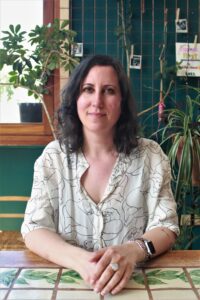
Creative Projects Manager at EFI and a poet.
I help the Edinburgh Futures Institute by managing a portfolio of creative projects that connect our work to the wider communities within the University of Edinburgh and beyond its walls, including student exhibitions, Utopia Lab and beautiful endeavours like Recycling a Hospital.
Jimmy Turner
Research Fellow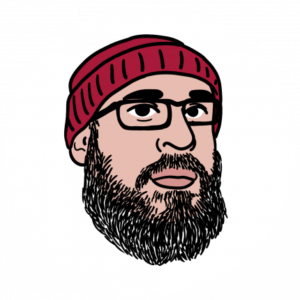 at Binks Hub and a woodworking artist.
at Binks Hub and a woodworking artist.
I am an interdisciplinary researcher with a background in Anthropology and Gender Studies, working as a Research Fellow for the Binks Hub at the University of Edinburgh. In recent years my focus has been drawn to use of artistic and creative methods and practices, leading me to explore ways to bring my own artistic practices in woodworking into conversation with my professional activities.
Gintare Kulyte
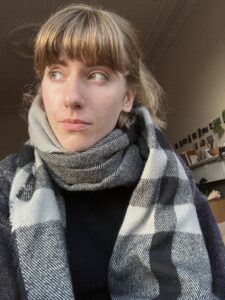
Creative Projects Intern at EFI and a photographer.
I am a final year student of Sociology and Psychology here at the University of Edinburgh. In my role of Creative Projects Intern I support the delivery of the creative projects at EFI. I am also a photography enthusiast and will contribute to this project by documenting it in pictures.
Ekaterina Shurkova
Teaching Fellow in Psychology, facilitator at Symbolic Space.
As a cognitive neuroscientist, I am interested in how we connect with the world: how we learn, play, communicate, solve problems, and change our mind. My research interests lie in creative problem solving and seeing the world in terms of relations. The most intriguing topic for me is the role of symbols, metaphors, and an awareness of space around us in our growth and problem solving. I am interested in research on the mind and the brain, as well as in studies on animism, ritual, and ceremony. I currently work as a Teaching Fellow at the Department of Psychology and run a private coaching practice, Symbolic Space.
The Collaborators
Gus Fisher
Gus Fisher is an artist and craftsman specialising in letter design, stone carving and metal work. In his artistic practice, he combines his passion for lettering with experience of learning from UK master practitioners and traveling in Italy and Turkey to create cutting edge designs.
To date, Gus has worked on numerous works of public art, as well as invidual and public memorials, including the British Normandy Memorial. Gus is also a member of Scottish Lettercutter’s Association, an organisation that supports and promotes the traditional art of letter-carving.
Read more about Gus and his unique approach to his artistic practice on the Scottish Gallery website, as well as his personal website Eye Cut Stone.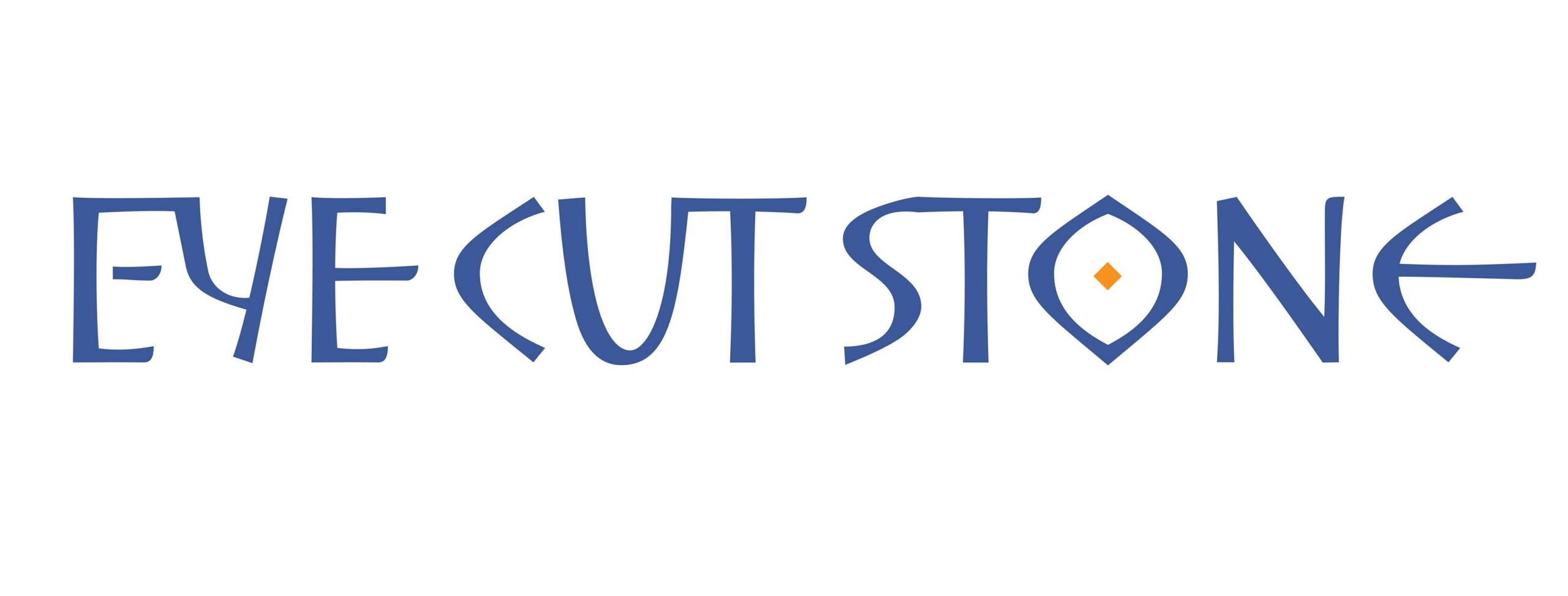
The Grassmarket Community Project
The Grassmarket Community Project (GCP), based at the Grassmarket Centre, is a community of over 500 people, working together to support positive changes in one another’s lives.
Its mission is to create an inclusive person-centred environment where people feel empowered to develop skills, build positive relationships and enjoy an ongoing sense of belonging.
GCP has a wood workshop where community members can gain valuable woodworking skills, a workshop of tartan and other textile products, as well as a cafe and a tartan shop. These and many other initiatives that GCP houses provide a space where individuals that for different reasons face social exclusion can improve their employment skills and achieve greater self esteem.
You can read more about GCP, follow their news and find ways to get involved on GCP website.
